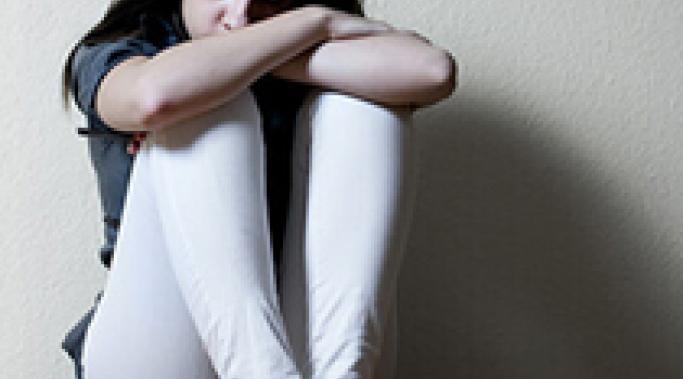Blogs
Eating disorders can affect the way we view sex and sexuality. They whittle down more than what our bodies look like. They destroy our sense of self, our relationships, and take a toll on our emotional, spiritual, and psychological wellbeing. When I began my recovery in the hospital, the group decided to have a conversation about sex. What I learned was fascinating and solidified that eating disorders affect our sex lives.
Some argue that professionals shouldn’t talk about Trump’s mental health, mostly comparing him to anyone else. For example, I wouldn’t want, nor would I think it was appropriate, for a mental health professional to make judgments about my mental health based solely on my public actions. But then again, I’m not The President of the United States. And that makes the situation just a wee bit different. It’s because of this that professionals should openly talk about Trump’s mental health and fitness as a president.
Sometimes we don't know if a child's behavior is age-related or a mental illness (Brain Disorders: Mental Disorders vs. Behavioral Disorders). For example, how do you know if your two-year-old is hyperactive or just high-energy? Yet according to the National Alliance on Mental Illness, half of all chronic mental health conditions manifest by age 14, and three-fourths by age 24. In this video, I discuss the difference between age-related behavior and mental illness symptoms.
This is a story of accepting my child's mental illness and moving through the stages of grief. I want this story to serve an emotional purpose. For others parenting a child with mental illness, I hope it normalizes your experience. For people who haven't been through this but want to support a parent, I hope it makes those feelings real for you. Mental illness in children is gut-wrenching to watch. As a parent, the grief can be crippling, and because others don't always understand, the grief can be lonely. We need understanding when parenting a child with a mental illness if we're going to push through the stages of grief towards the hope on the other side.
Recently, someone said I was pitying myself because I have bipolar disorder, and this person was judging me very negatively for it. The person said I was having a bipolar pity party, if you will. Not surprisingly, I felt this notion was far off the mark. I feel suggesting that pity about bipolar disorder from the self or others is always negative, is just plain wrong.
Sometimes the emergency room becomes a mental health ward. Frequently there are no beds available in psychiatric hospitals so the emergency room is the one place a mental health consumer can be kept relatively safe and under supervision. This has happened to me a few times, and it's such a problem that USA Today mentioned it in an article series.1 But this is ineffective at best and makes things worse at worst. Here is why using emergency rooms as mental health wards doesn't work.
Some people don't understand this, but binge eating disorder combined with depression can make food your only friend.When binge eating ran my life, I also experienced major depression. I don't know which came first, the binge eating disorder or depression, but co-occurrence of depression is common among those with eating disorders (Depression and Eating Disorders: When Sadness Never Fades).
We should call the police in a mental health crisis only as a last resort. I spent some time at a psychiatric hospital that used off-duty but uniformed Marion County Sheriff's Deputies as security. I thought this was a bad idea because many mental health consumers have had bad experiences with the police. Even though I have no criminal record, I have a mild fear of police officers, especially when in crisis, because I've seen confrontations end badly (Mental Health Crises and Calling the Police). For example, one night a patient refused to go to his room, and security was summoned. One deputy pulled out his can of pepper spray and yelled, "You want some of this?" That's one reason why calling the police during a mental health crisis should be a last resort, especially in hospitals.
If ruminating on memories of mental health stigma and discrimination haunt you, there are ways for you to stop ruminating. Taking back control when you remember events where you were stigmatized, can be as simple as taking a breath. Here are some techniques to help you stop ruminating on mental health stigma memories of when you were ill.
Writing about posttraumatic stress disorder (PTSD) has been a wonderful experience for me, but the time has come for me to say goodbye to Trauma! A PTSD Blog. I believe that people, things, and opportunities come into our lives for a reason and that sometimes, once we have learned what we need to from them, it is time to move on. This blog has done that for me and I hope that along the way I have helped others who suffer from PTSD.










I believe she will only be able to rid herself of her demons, and hopefully her BPD as well, when she's ready to confront the abuse of her father. If she can put the blame where it belongs, she may stop projecting that victim/perpetrator cycle on the present men in her life. These demons are a metaphor for the purgatory she has created for herself. That reality has consequences in the real world, but it need not be real in the tangible sense. Exorcising her demons will require the expenditure of real physical energy and probably the destruction of aspects of her personality. If this ever happens, and it's possible but not probable, then these demons will evaporate. They are only as real as one's personality is real. In short, reality is not the question, it's what you make of the things you feel to be real.